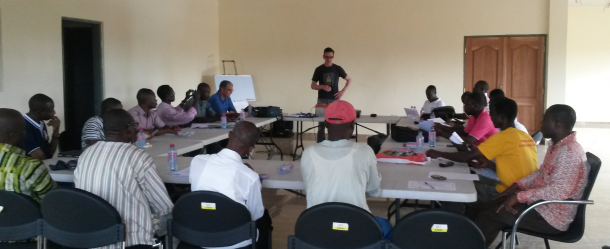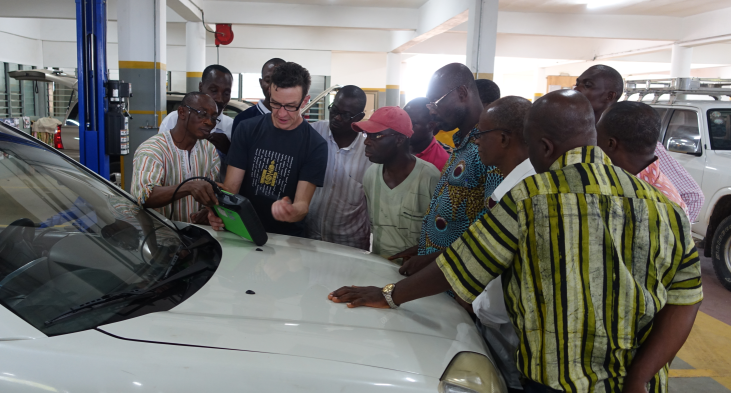A three days workshop for Automotive Trade Teachers and GNAG Master Craftspersons, on Workshop Information Systems and Workshop Diagnostic Systems was initiated by GSDI. “To meet the requirements of customers in the modern automotive business the work without both of the systems is unthinkable!” said the facilitator of the workshop, Mr. Torsten Kietz who is running his own automotive workshop in Germany.

20 participants were selected for the training on information and diagnostic systems from 3rd to 5th June 2015, at ‘Advance Auto Technology & Diagnostic Center’ in South Ofankor, Accra.
The first training day was focusing on workshop information systems (WIS). According to the feedback from the participants WIS are currently very rarely used in the automotive workshops in Ghana and the use of WIS is hardly taught in TVET schools.
During the training the importance of the systems in the near future for the informal Ghanaian automotive sector became obvious. The production cycles of modern cars are shortened, the complexity and availability of technical features and accessories on the other hand is growing. Therefore precise information about the specific car, which has to be repaired, is mandatory for a successful work. Electronic workshop information systems that are updated by car manufacturers on a regular basis offer the needed information to workshops worldwide.
The use of Workshop Diagnostic Systems is also mandatory for trouble-shooting on modern cars.
The following core issues were handled during the training:
- Identification of the vehicle in the system
- Control unit search
- Reading and deleting of fault codes
- Display of actual values and the course of actual values
- Control actuators and simultaneously display the actual value changes
- Reset of adaptation values
- Special functions
These issues are fundamental to any control unit diagnostics.

Examples from the everyday work in workshops handling modern vehicles were discussed and shown. Changing brake pads for vehicles with electronic parking brake which is impossible without diagnostic tester was one of these examples.
Even if some participants were very familiar with the subject and use the systems frequently they underlined the need for further training. Especially the participants from the TA side face the importance of the WI/WD systems to ensure the roadworthiness of customer cars as well in the future.


